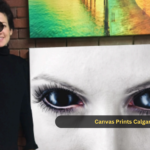Can AI take on the role of an automatic creative assistant? The experiment showed that the tool helped less creative people write more original stories, but the group as a whole performed worse.
It seems that the study by Anil Doshi and Olivier Hoser from University College London and the University of Exeter (published in Science Advances) confirms the popular opinion. Artificial intelligence can be useful. But it cannot offer anything new in terms of creativity.
The Experience
The participants in the experiment were required to come up with short stories on any topic that would be suitable for a wide audience. One group wrote on their own. The second could generate one story from several sentences in GPT-4 (and use them as much as they wanted). And the third could generate up to 5 stories.
After that, the stories were evaluated by the authors themselves. The second group, which was unaware of the use of generative AI. They took into account novelty, usefulness (the likelihood that the text would be published), and whether the text evoked an emotional response.
Participants also completed a word-making task beforehand. An approach often used in academia to assess creativity.
The Bottom Line?
People with low creativity scores also scored low on their stories. The more they were able to use the chatbot, the more their scores improved.
Participants with high creativity scores, on the other hand, saw little or no benefit from the AI. It appears that creative people performed better when they didn’t use the chatbot.
The researchers also ran some analyses of their own. They used OpenAI’s API to determine how similar each story was to others within its category . For example, whether it was created entirely by humans, used one AI version, or used five AI versions).
It was found that if the authors had access to generative AI. Their stories became more uniform and varied less within the group. The texts did not completely copy each other – they differed by 9-10%.
“While these results indicate an improvement in creativity at the individual level, there is a risk of losing originality at the collective level… Our results suggest that despite the positive effect that generative AI has on individual creativity, perhaps the study will serve as a warning if generative AI is used more widely for creative tasks,” the authors of the study comment.
This concern extends beyond creative fields and into industries like online gaming, where platforms like Betchan are exploring how AI can be used to enhance user experiences while maintaining unique, engaging content.
Hoser and Doshi acknowledge that their work is just the beginning: this is a very new field, and every study, including their own, has limitations.
“Ideally, our research will help shape both the technology and how we interact with it to ensure continued diversity in creative ideas, whether in writing, art, or music,” Hoser writes.










